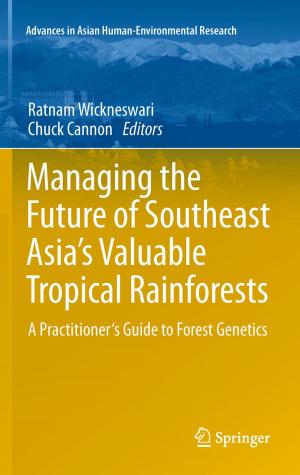African Greenhouse Gas Emission Inventories and Mitigation Options: Forestry, Land-Use Change, and Agriculture
Johannesburg, South Africa 29 May – June 1995
Nonfiction, Science & Nature, Science, Other Sciences, Meteorology, Biological Sciences, Environmental Science, Nature| Author: | ISBN: | 9789400916371 | |
| Publisher: | Springer Netherlands | Publication: | December 6, 2012 |
| Imprint: | Springer | Language: | English |
| Author: | |
| ISBN: | 9789400916371 |
| Publisher: | Springer Netherlands |
| Publication: | December 6, 2012 |
| Imprint: | Springer |
| Language: | English |
As atmospheric concentrations of greenhouse gases continue to increase, so does the potential for atmospheric warming and associated climate change. In an effort to address the threat of global climate change, 155 countries signed the UN Framework Convention on Climate Change at the Earth Summit in Rio de Janeiro in June 1992. As of the first session of the Conference of the Parties, 128 nations had ratified the Convention. Among their other commitments, Parties to the Convention must develop and periodically update national inventories of net anthropogenic greenhouse gas emissions using comparable methodologies, and must develop and implement national programs to mitigate greenhouse gas emissions.
To further the development of emission inventories and mitigation options within the African context, 64 governmental and non-governmental scientists and policy analysts from 23 nations gathered at a workshop near Johannesburg, South Africa from 29 May to 2 June 1995. The workshop focused on forestry, land-use change, and agriculture, because these sectors not only are responsible for the majority of emissions from the continent and provide promising opportunities for emissions mitigation, but also are a vital component of African economic growth and development.
This book presents the workshop's major conclusions and findings, as well as individual papers that were prepared for the workshop, each of which was peer-reviewed and accepted for publication as part of the workshop process. The papers cover four areas: (1) issues are associated with data collection and emission factor determination; (2) problems associated with applying the IPCC inventory methodologies in Africa; (3) results of national inventory assessments in Africa; and (4) possible emissions mitigation options and methods for evaluating their potential viability.
As the first book dedicated solely to greenhouse gas emissions and mitigation options in Africa, this will be an invaluable resource to scientists, policymakers, and development specialists interested in global climate change and Africa.
As atmospheric concentrations of greenhouse gases continue to increase, so does the potential for atmospheric warming and associated climate change. In an effort to address the threat of global climate change, 155 countries signed the UN Framework Convention on Climate Change at the Earth Summit in Rio de Janeiro in June 1992. As of the first session of the Conference of the Parties, 128 nations had ratified the Convention. Among their other commitments, Parties to the Convention must develop and periodically update national inventories of net anthropogenic greenhouse gas emissions using comparable methodologies, and must develop and implement national programs to mitigate greenhouse gas emissions.
To further the development of emission inventories and mitigation options within the African context, 64 governmental and non-governmental scientists and policy analysts from 23 nations gathered at a workshop near Johannesburg, South Africa from 29 May to 2 June 1995. The workshop focused on forestry, land-use change, and agriculture, because these sectors not only are responsible for the majority of emissions from the continent and provide promising opportunities for emissions mitigation, but also are a vital component of African economic growth and development.
This book presents the workshop's major conclusions and findings, as well as individual papers that were prepared for the workshop, each of which was peer-reviewed and accepted for publication as part of the workshop process. The papers cover four areas: (1) issues are associated with data collection and emission factor determination; (2) problems associated with applying the IPCC inventory methodologies in Africa; (3) results of national inventory assessments in Africa; and (4) possible emissions mitigation options and methods for evaluating their potential viability.
As the first book dedicated solely to greenhouse gas emissions and mitigation options in Africa, this will be an invaluable resource to scientists, policymakers, and development specialists interested in global climate change and Africa.















